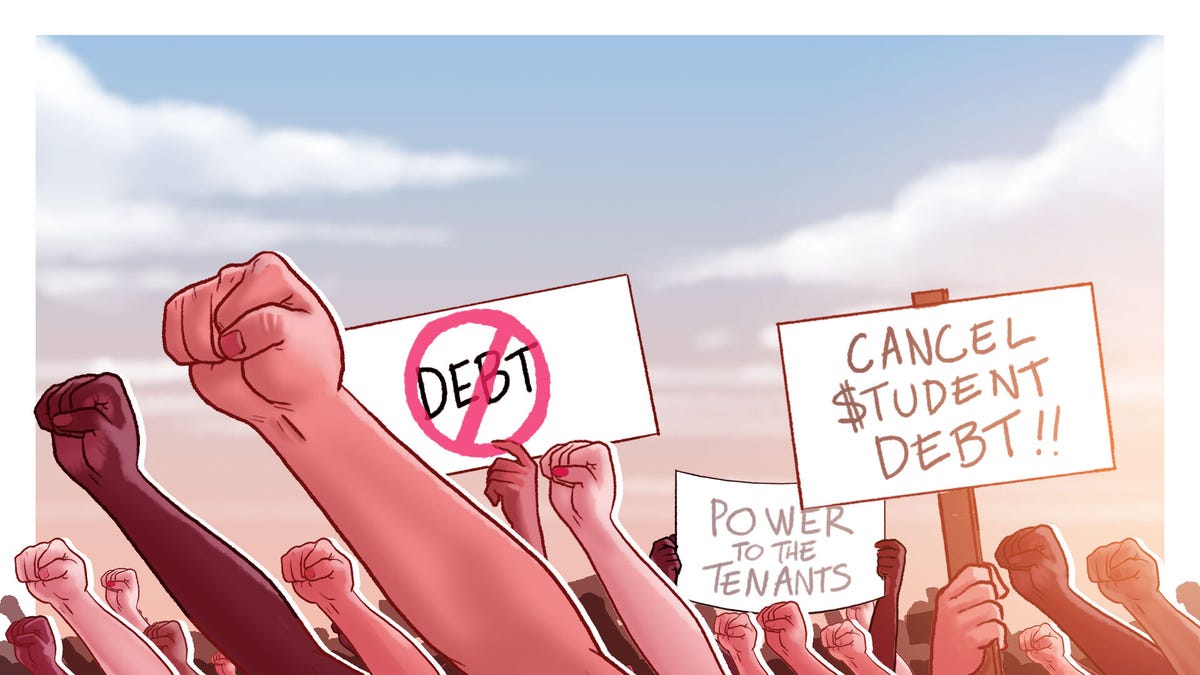You Can “consolidate” Your Debt

When faced with overwhelming debt, you may be tempted to resign yourself to feelings of hopelessness and loneliness. This is understandable, given that society tends to treat debt as a personal problem—your fault, your job to fix the consequences. But debtor unions are trying to change that.
Debtors Union is a group of people using their collective power to fight for better conditions in our financial lives. They promise that by joining with others facing similar struggles, you can gain power, knowledge, and support on your path to financial freedom. Here’s what you need to know about debtor’s unions and why you might want to join one.
What is a debtors’ union?
The Debtors Union is an organization that helps people collectively negotiate, confirm and dispute personal debts. Joining a debtors union can be a helpful strategy when you are facing financial difficulties due to medical bills, student loans, credit cards, payday loans or other debts. Debtor unions provide the numbers, expertise, legal support and sense of community to help members take control of their debts, repair their credit scores and build financial independence.
Why join a debtors’ union?
According to the most prominent organization of its kind, Debt Collective , “joining your union will bring you into the debtor community, ensuring your voice is heard in our campaigns and strategies.” It also gives you “access to training to help you fight and pay off debt for yourself and others.”
In the workplace, workers organize into unions to create the working conditions they want and believe they deserve, be it demanding higher wages, establishing fairer working hours, or providing better healthcare. Likewise, a debtors’ union uses collective power to protect the interests of its members. In practice, this looks like a fight for debt renegotiation and cancellation, increased access to government-funded benefits (education, health care, housing, etc.), anti-racist economic policies, and much more. Generally speaking, joining a union is a good thing.
More specifically, one of the main benefits that debtor unions provide is leverage in negotiations with creditors and debt collectors. Lenders have the right to set their own terms, penalties, and interest rates on your debt. But working with other debtors gives you the opportunity to collectively bargain for lower interest rates, reduced penalties, and even forgiveness of part of the debt. Unions have professional negotiators who know how best to work with creditors to reduce members’ debt burdens.
Unions also offer access to financial experts who can conduct a forensic audit of your accounts and identify any errors or fraud. If creditors acted illegally or unethically in settling your debt or attempting to collect it, the union has legal resources to call them out and get the debt forgiven or discounted.
How to join a debtors’ union
Assess your needs
First, take stock of your current debts. Make a list of who you owe money to and how much. This will help you understand the amount of debt you need help with. Debtors’ unions typically help with unsecured consumer debts for credit cards, medical bills, utilities, car loans and the like. They do not deal with secured debts such as mortgages.
Explore different debtor unions
The Debt Collective is a large one, but there are several reputable national and regional debtor unions that are worth considering joining. Do some research to find the ones that operate in your state and the types of services they provide. Look for reputable nonprofits with a track record of delivering results for their members. Some key services to look out for include:
- Debt negotiations. Unions negotiate with creditors and debt collectors to reduce the amount you owe.
- Debt protection. Unions check debts for errors and fight unfair debt collection practices.
- Credit consulting. Unions help their members improve credit scores and manage budgets.
- Education. Unions educate their members about consumer rights and sound money management.
After assessing your debts and researching unions, think about your specific needs. Think about the amount and type of debt you need help with. Also think about what services are most important—negotiating lower payments, correcting errors on credit reports, or getting rid of debt collectors. This will help you determine which union will work best.
Join your union and participate in collective action
When you find a debtors’ union that suits your situation, join it. Attend meetings, follow their advice, and stay involved in the process. The more you put into it, the more the union can help you negotiate and settle your debts on favorable terms. Please be patient as this process may take time. Through persistence and collective action, many members have finally achieved debt relief.
Debtor unions provide consumers with combined power and expertise to resolve unmanageable personal debts. If your debts are larger than you can handle on your own, joining a reputable debtors’ union can provide welcome support and help you find real solutions.
In the meantime , here’s our guide to getting organized and getting out of debt . If you need professional help reviewing and managing your debts, here’s our guide to hiring a financial advisor who won’t scam you .